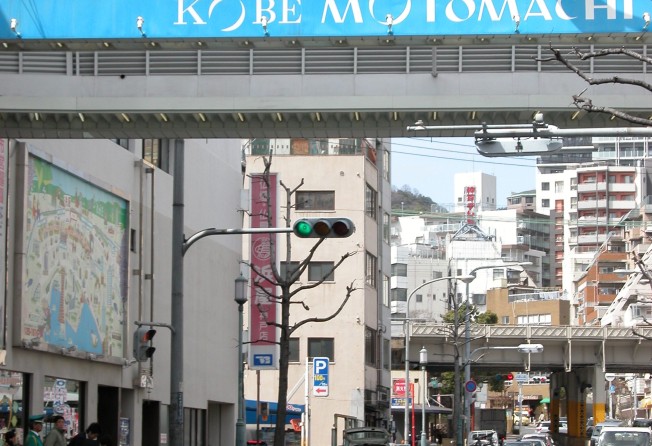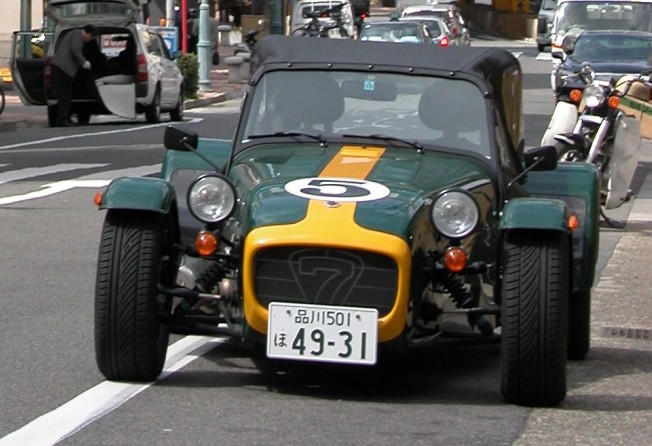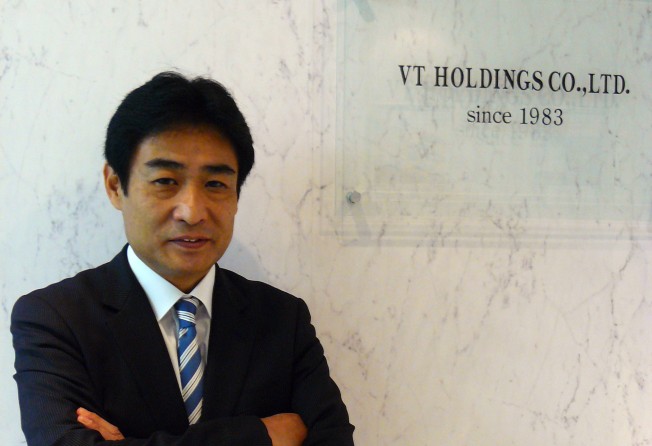
Caterham rides wave of revival as Japan owner seeks to ‘turn around’ UK sports car brand
- Dealership entrepreneur and former racing driver Kazuho Takahashi says he can easily sell 1,000 Caterhams a year in Japan alone, as demand is so high
- Nation is world’s third-largest car market, after China, US; many buy a sports car when children leave, pandemic ‘revenge’ spending also at play

Japanese fans of the Caterham Seven are scrambling to purchase the iconic sports cars, built in the English county of Kent, as the brand rides a wave of enthusiasm in the Far East, the company’s new owner has said.
Kazuho Takahashi, founder and CEO of Nagoya-based VT Holdings Co., a major car dealer business, bought Caterham Cars Ltd in March last year. He says he intends to use his vast knowledge of the automobile industry to “turn around” a make that has been globally underperforming for years.
Takahashi’s firm took over importing Caterhams into Japan in 2008 and had been selling around 500 units a year, although demand is so strong now that double that number could easily be sold, he said.
The only brake on the brand in Japan is the time between a customer ordering a car and it being delivered, said 69-year-old Takahashi, who only announced his retirement from Super GT racing in late 2019.
Beyond Japan, Takahashi plans to launch the Caterham brand in other Asian markets and he is confident that drivers there will be just as receptive to the car.
At present, it takes 18 months to produce and deliver a bespoke car, he said, adding his company aims to get the delivery time down to just three months.
“I started as a salesman for second-hand cars at the age of 22 but now I have a network of hundreds of new car dealerships across Japan, but I always dreamed of being a car maker,” said Takahashi, a well-known figure at the track, who started racing in his early 20s.

When the opportunity arose last year to buy Caterham, Takahashi says the decision was an easy one.
“When I first started expanding my dealerships, I looked for ones that were doing badly but had potential, I bought them and turned them around,” he said. “We looked at the fundamentals of Caterham and decided they were not bad at all. I was confident we could take what was an unprofitable business and make it profitable again. So that’s what we are doing.”
Caterham was founded in 1973 and the same year launched the first generation of the Seven, a direct descendant of the Series 3 Lotus Seven designed by legendary auto engineer and designer Colin Chapman.
Low-slung, with a long, slender bonnet, protruding front wheels and a roll bar, the Seven is widely regarded by enthusiasts to be one of the most attractive sports cars of the 20th century.

After a due-diligence process that took three years, VT Holdings acquired the brand from Tony Fernandes, a Malaysian entrepreneur who has dabbled in various firms including budget airline AirAsia and Queens Park Rangers Football Club in London, and bought Caterham in 2011. The cost of the deal has not been announced.
“Japan is the third-largest market for cars in the world, behind China and the US, and there are 80 million cars on Japan’s roads today,” Takahashi said. “This is a highly motorised society and there are a lot of people who aspire to a second car that is not what they drive on a daily basis.
“They want to have fun, they want an enjoyable driving experience,” he said, adding that many buyers purchase a Caterham Seven after the children leave home, fulfilling a dream they have had for “10 or even 20 years”.

Japan’s car industry has in recent months experienced a surge in demand for sports cars, a phenomenon that dealers put down to “revenge spending” – or lashing out on a luxury because the pandemic has largely meant people have not been able to travel abroad or go out to nice restaurants for well over two years.
As a result, middle-aged Japanese buyers are more than happy to pay 5.5 million yen (US$40,000) for a basic Caterham, rising to 9 million yen (US$66,000) for the top-of-the-line variant.
Prices have been impacted by the weak yen, Takahashi agreed, but he waved away suggestions that more expensive cars for Japanese buyers will affect sales. There have been challenges in the past, he points out, but there will always be demand for “a high-end product with pedigree”.
Work is now under way to put the first electric drivetrain – the components that, together, transfer the engine’s energy to the wheels – into a Caterham Seven. This is a “natural progression” given the introduction of new regulations in key markets around the world, while consideration is also being given to additional production facilities to keep up with demand in countries like Japan and the US, Takahashi said.
And there could be a whole lot more. While he was very cagey on the details, Takahashi hinted that the wraps are likely to come off an entirely new project at the Tokyo Motor Show in October 2023.